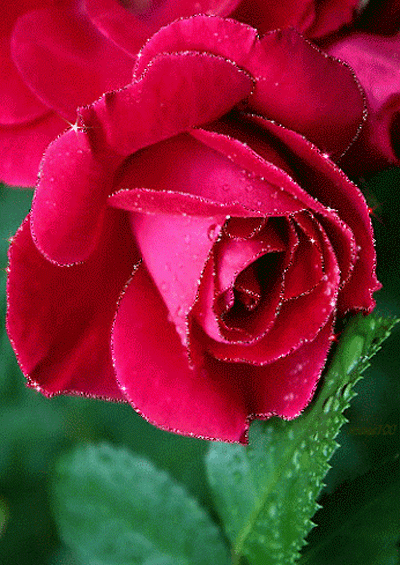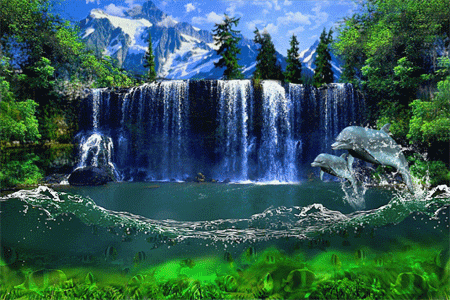-
Comment January 16, 2016
-
Everything is Changeable
Comment January 14, 2016
By Ven. Dr. K. Sri Dhammananda Maha Thera
What exists is changeable and what is not changeable does not exist.
Looking at life, we notice how it changes and how it continually moves between extremes and contrasts. We notice rise and fall, success and failure, loss and gain; we experience honor and contempt, praise and blame; and we feel how our hearts respond to all that happiness and sorrow, delight and despair, disappointment and satisfaction, fear and hope. These mighty waves of emotion carry us up, fling us down, and no sooner we find some rest, then we are carried by the power of a new wave again. How can we expect a footing on the crest of the waves? Where shall we erect the building of our life in the midst of this ever-restless ocean of existence?
This is a world where any little joy that is allotted to beings is secured only after many disappointments, failures and defeats. This is a world where scanty joy grows amidst sickness, desperation and death. This is a world where beings who a short while ago were connected with us by sympathetic joy are at the next moment in want of our compassion. Such a world as this needs equanimity. This is the nature of the world where we live with our intimate friends and the next day they become our enemies to harm us.
The Buddha described the world as an unending flux of becoming. All is changeable, continuous transformation, ceaseless mutation, and a moving stream. Everything exists from moment to moment. Everything is a recurring rotation of coming into being and then passing out of existence. Everything is moving from birth to death. The matter or material forms in which life does or does not express itself, are also a continuous movement or change towards decay. This teaching of the impermanent nature of everything is one of the main pivots of Buddhism. Nothing on earth partakes of the character of absolute reality. That there will be no death of what is born is impossible. Whatever is subject to origination is subject also to destruction. Change is the very constituent of reality.
In accepting the law of impermanence or change, the Buddha denies the existence of eternal substance. Matter and spirit are false abstractions that, in reality, are only changing factors (Dhamma) which are connected and which arise in functional dependence on each other.
Today, scientists have accepted the law of change that was discovered by the Buddha. Scientists postulate that there is nothing substantial, solid and tangible in the world. Everything is a vortex of energy, never remaining the same for two consecutive moments. The whole wide world is caught up in this whirl and vortex of change. One of the theories postulated by scientists is the prospect of the ultimate coldness following upon the death or destruction of the sun. Buddhists are not dismayed by this prospect. The Buddha taught that universes or world cycles arise and pass away in endless succession, just as the lives of individuals do. Our world will most certainly come to an end. It has happened before with previous worlds and it will happen again.
‘The world is a passing phenomenon. We all belong to the world of time. Every written word, every carved stone, every painted picture, the structure of civilization, every generation of man, vanishes away like the leaves and flowers of forgotten summers. What exists is changeable and what is not changeable does not exist.’
Thus all gods and human beings and animals and material forms — everything in this universe — is subject to the law of impermanence. Buddhism teaches us:
‘The body like a lump of foam;
The feelings like a water bubble;
Perception like a mirage;
Volitional activities like a plantain tree;
And Consciousness like jugglery.’ (Samyutta Nikaya) -
When we try to understand it
Comment January 14, 2016Love is an untamed force. When we try to control it, it destroys us. When we try to imprison it, it enslaves us. When we try to understand it, it leaves us feeling lost and confused. ~Paulo Coelho

-
What you’re missing
61 January 13, 2016Instead of thinking about what you’re missing, try thinking about what you have that everyone else is missing. ~Unknown

-
Warmheartedness and Compassion
35 January 13, 2016Scientists are discovering that while anger and hatred eat into our immune system, warmheartedness and compassion are good for our health. ~Dalai Lama

-
Wider Heart and Mind
43 January 13, 2016Having a wider heart and mind is more important than having a larger house. ~Venerable Cheng Yen

-
One Human Family
9 January 13, 2016…Whether we like it or not, we have all been born on this earth as part of one great human family. Rich or poor, educated or uneducated, belonging to one nation or another, to one religion or another, adhering to this ideology or that, ultimately each of us is just a human being like everyone else: we all desire happiness and do not want suffering. Furthermore, each of us has an equal right to pursue these goals…
This has been the most painful period in human history, a time when, because of the vast increase in the destructive power of weapons, more people have suffered from and died by violence than ever before. Furthermore, we have also witnessed an almost terminal competition between the fundamental ideologies that have always torn the human community: force and raw power on the one hand, and freedom, pluralism, individual rights and democracy on the other. I believe that the results of this great competition are now clear. Though the good human spirit of peace, freedom and democracy still faces many forms of tyranny and evil, it is nevertheless an unmistakable fact that the vast majority of people everywhere want it to triumph. Thus the tragedies of our time have not been entirely without benefit, and have in many cases been the very means by which the human mind has been opened. The collapse of communism demonstrates this. ~Dalai Lama

-
Global Peace
27 January 13, 2016Our planet is blessed with vast natural treasures. If we use them properly, beginning with elimination of militarism and war, truly, every human being will be able to live a wealthy, well-cared-for life.
Naturally, global peace cannot occur all at once. Since conditions around the world are varied, its spread will have to be incremental. But there is no reason why it cannot begin in one region and then spread gradually from one continent to another… ~Dalai Lama

-
TODAY
55 January 13, 2016
♥ Before you say an unkind word – Think of someone who can’t speak.
♥ Before you complain about the taste of your food – Think of someone who has nothing to eat.
♥ Before you complain about your husband or wife – Think of someone who’s crying out to GOD for a companion.
♥ Before you complain about life – Think of someone who went too early to Heaven.
♥ Before whining about the distance you drive – Think of someone who walks the same distance with their feet.
♥ And when you are tired and complain about your job – Think of the unemployed, the disabled, and those who wish they had your job…
♥ And when depressing thoughts seem to get you down – Put a Smile on your face and think: You’re Alive and still around. ~Unknown -
Jayamangala Gatha: Stanzas of Victory
33 January 12, 2016The recital of the Jayamangala Gatha, a set of eight benedictory stanzas extolling the virtues of the Buddha, is usually done on important occasions or when inaugurating any venture of significance. The contents of the stanzas, when recited clearly, are intended to bring happiness and success in all good endeavours we embark upon. These verses have come to be called “The Stanzas of Victory” or Jayamangala Gatha. A unique feature that concludes each verse is the line “By virtue of this, may joyous victory be yours.” These stanzas are regarded as efficacious because they relate to eight occasions, each based on beautiful story, where the Buddha triumphed over his powerful opponents by the sheer power of good.
Through these verses, one will realize that true victory is JOY; where none is left dejected or in pain. Each time the Buddha triumph over His adversaries, He left them with realizations and awe over the pure powers of generosity, patience, self control, loving kindness, serenity, peace, truthfulness and other virtues. The vanguished never leaves without lamp of wisdom being lighted; ensuring them greater happiness.
While the origin of these stanzas is shrouded in mystery, it can be stated with certainty that they were compose in Sri Lanka by a devout Buddhist poet.







